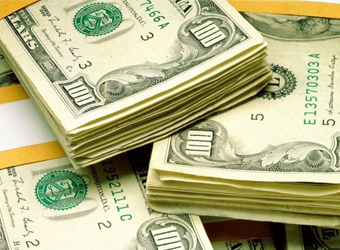The dollar dropped below Wednesday’s nadir of 106.725 yen and fell as low as 106.42 yen, its weakest level since November 2016. That marked a drop of 3.7 percent from its early February peak near 110.50 yen.
The U.S. currency later pared some of its losses and was last down 0.3 percent at 106.67 yen.
“There’s nothing specific, it’s just a continuation of dollar selling that we’ve seen everywhere overnight, said Tareck Horchani, head of sales trading in Asia Pacific for Saxo Markets in Singapore.
Traders and analysts said the next support level for the dollar was around 105 yen.
Some market participants said speculative buying of the yen initially helped drag the dollar lower, with stop-loss dollar selling later adding to the fall against the Japanese currency.
On Wednesday, the dollar gained a lift after a stronger-than-expected rise in U.S. consumer prices in January bolstered bets that the Federal Reserve might raise interest rates four times in 2018.
But that gain for the dollar proved short-lived, and the greenback ended up retreating broadly against major peers despite the change in expectations for U.S. interest rates.
In Thursday’s Asian trade, the euro edged up 0.1 percent to $1.2459, after gaining 0.8 percent on Wednesday. Sterling was steady at $1.4004, after also having risen 0.8 percent the previous day.
In the wake of the dollar’s sharp drop against the yen over the past couple of weeks, there was increased focus on whether Japanese exporters and Japanese investors would step up moves to hedge their exposure to the U.S. currency.
“As a defensive mechanism I think they will probably be more inclined to sell dollars here to protect downside risk for further U.S. dollar weakness,” said Stephen Innes, head of trading in Asia-Pacific for Oanda in Singapore.
“Obviously I think we’re going to have the verbal lashing from Japan’s currency officials. But I still think we’re not close to the point of overt intervention and I think the market’s going to take us down to the 105s,” Innes said.
Japanese Finance Minister Taro Aso said on Thursday that he doesn’t see current yen moves as being so strong or weak that would warrant intervention, adding that there was no plan now to respond to FX moves. Source: Reuters
Source: Reuters


